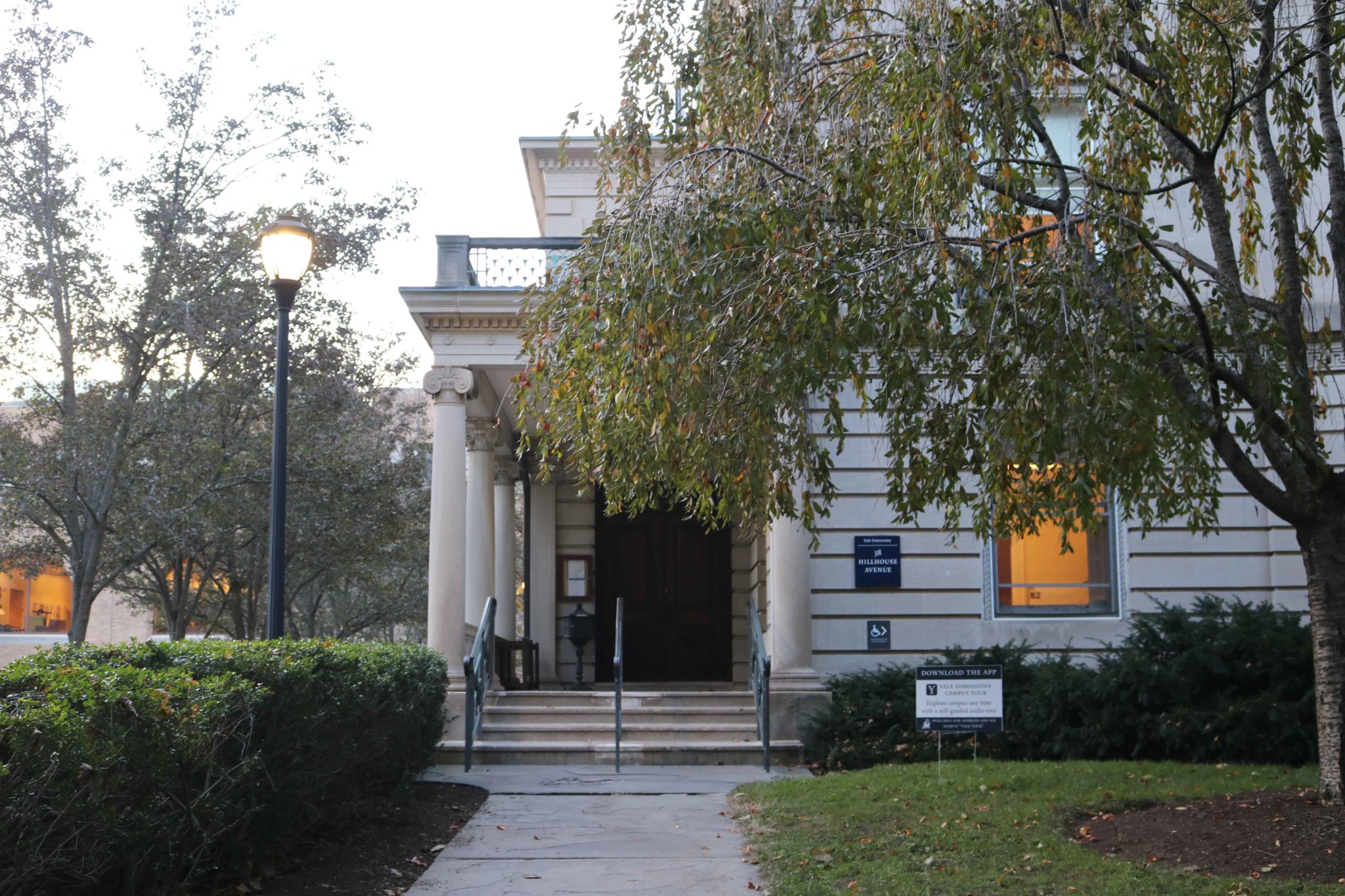
Kai Nip
After authorities charged at least 50 people, including celebrities and coaches of Division I sports, with paying or accepting bribes to help admit applicants to Yale and other elite universities, University spokesperson Tom Conroy told the News on Sunday that the University has rescinded the admission of one student “as a result of this matter.”
In a Sunday interview with the News, Conroy said that Yale has started an internal review with the assistance of outside counsel. He added that Yale has no reason to believe that other students were involved in the scheme besides the one who had her admission rescinded and another who was never accepted.
On March 14, The Wall Street Journal reported that Morrie Tobin, a father of Yale students, allegedly tipped off federal authorities to the scandal when he provided information in an attempt to gain leniency for an unrelated securities fraud case. According to the Journal, former Yale women’s soccer head coach Rudy Meredith offered Tobin a bribe, which he declined.
The Journal later reported on March 19 that, according to a person familiar with the investigation, Tobin participated in the scam by paying a bribe. However, Conroy said that Yale does not know the Journal’s source and cannot comment on the accusation’s accuracy. At the time of this story’s publication, the News has not been able to identify the source or confirm the allegation published in the Journal.
The scandal centers around a for-profit admissions company based in Newport Beach, California. The owner, William “Rick” Singer, allegedly received $25 million in bribes from parents to help their children cheat on college entrance exams and pass money to varsity sports coaches, according to prosecutors. According to unsealed Department of Justice documents, Meredith “accept[ed] bribes in exchange for designating applicants to Yale as recruits for the Yale women’s soccer team, and thereby facilitating their admission to the university.” The Department of Justice claims that Meredith had been working with Singer since April 2015.
Meredith, who resigned in November 2018, is charged with two counts of wire fraud and is scheduled to appear in court on March 28. Documents revealed that Meredith had been working as a cooperating witness for the FBI for at least five months — between April and November 2018 — during soccer season and a recruiting cycle.
In one example of bribery cited in court documents, Singer agreed to help “facilitate the admission of an applicant to Yale,” known in the case as “Yale Applicant 1,” “in or about” November 2017 in exchange for a $1.2 million payment from the applicant’s parents in the “spring or summer of 2018.” Yale Applicant 1 was admitted to the University as a women’s soccer recruit despite having never played competitive soccer and has since had her admission rescinded.
Singer allegedly worked with Laura Janke, a former assistant women’s soccer coach at the University of Southern California, to create a falsified profile to be included in that applicant’s application.
“[C]ould you please create a soccer profiles asap for this girl who will be a midfielder and attending Yale so she has to be very good. Needs to play Academy and no high school soccer…awards and honors — more info to come — need a soccer pic probably Asian girl,” read a Nov. 10, 2017, email from Singer to Janke, according to court documents.
When the applicant was admitted to Yale, Singer mailed Meredith a check for $400,000.
In an email to the Yale community the day the scandal was made public, Yale President Peter Salovey wrote that the University does not “believe that any member of the Yale administration or staff other than [Meredith] knew about the conspiracy.”
The Admissions Office deferred comments to Yale’s Office of Public Affairs and Communications, which released a statement saying that the admissions office was “the victim of a crime perpetrated by its women’s soccer coach, who is no longer at the university.”
“The Office of Undergraduate Admissions relies on varsity coaches to provide honest and expert evaluations of individual applicants’ athletic accomplishments and potential to contribute to a varsity team,” the statement continued. “The Admissions Committee considers these evaluations alongside the other components of an applicant’s file, but only students whose applications demonstrate their ability to succeed in the academic and residential components of the Yale experience are admitted.”
In his campuswide email, Salovey also noted that Director of Yale Athletics Vicky Chun has been implementing new policies to better oversee and assess Yale Athletics’ coaching staff to “ensure that student-athletes receive an excellent education at Yale and to enhance the quality of [Yale’s] athletic programs.” Chun will also conduct reviews of every coach’s roster of recruits before these rosters are sent to the admissions office.
Alongside Dean of Undergraduate Admissions and Financial Aid Jeremiah Quinlan, Chun will “implement a code of conduct for athletic recruitment.” Furthermore, the two will implement “more robust training for all coaches to ensure they understand” Yale’s recruitment policies, according to the email.
When announcing the initial charges March 12, Joseph R. Bonavolonta, the special agent in charge of the FBI’s Boston office, said that this scheme was the product of a “culture of corruption and greed.”
“You can’t lie and cheat to get ahead because you will get caught,” he said.
Other universities implicated in the scandal include Stanford University, Georgetown University and the University of Southern California.
Bill Gallagher | william.gallagher@yale.edu
Skakel McCooey | skakel.mccooey@yale.edu
Correction, March 25: A previous version of the story stated that the Wall Street Journal reported on March 19 that, according to a person familiar with the investigation, Tobin participated in the scam by accepting a bribe. In fact, he allegedly participated in the scam by paying a bribe.







